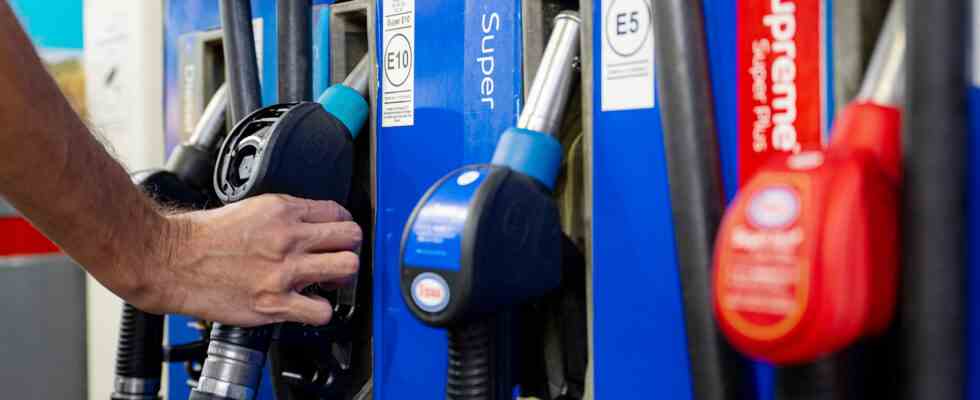Status: 08.09.2022 1:13 p.m
The Federal Cartel Office examined how fuel prices developed after the tax cut was abolished. However, it is not easy for the competition guardians to understand the market development.
According to the Bundeskartellamt, fuel prices in Germany rose somewhat less sharply on average after the tank discount expired at the beginning of September than they had fallen when the tank discount was introduced at the beginning of June. The authority has analyzed the latest price developments. After that there are very strong fluctuations between different gas stations, the course of the day and different regions.
Big differences between cities and regions
The cartel office gave the average price on September 1 at 2.08 euros for E5 petrol and 2.18 per liter of diesel. This represented an increase of 23 cents for E5 petrol and nine cents for diesel compared to the end of August. The tax burden, on the other hand, rose by 35 cents for the E5 and by 17 cents for diesel. At the start of the tank discount on June 1, according to the Cartel Office, a price reduction of 27 cents for E5 and eleven cents for diesel was recorded.
According to the Cartel Office, between September 1 and September 7, average prices fell slightly by one to two cents per liter. According to the analysis, however, price differences of sometimes more than 20 cents per liter can be observed even within the same city or region. At individual gas stations, there are fluctuations of up to 13 cents during the course of the day, with refueling in the evening usually being cheaper. In southern Germany, average fuel prices are currently up to 27 cents higher for E5 petrol and up to 24 cents higher for diesel than in the north, the Bundeskartellamt explained.
Mineral oil companies give several reasons
According to Andreas Mundt, President of the Cartel Office, the industry refers to several factors that – apart from the energy tax and the development of crude oil prices – played a role in pricing: “For example, the reduction in refinery capacities during the pandemic, the loss of import volumes from Russia, technical failures of refineries, the transport problems as a result of the low water and the renewed increase in demand.”
“Scarcies cause prices to rise. That’s an economic principle,” said the head of the agency. In its investigation of the refinery and wholesale level, the Cartel Office is investigating whether the price development and the still large gap to crude oil prices can be sufficiently explained by this. “We want to present the first results of the study in the fall,” announced Mundt.
“Tax cut definitely passed on”
According to the antitrust authorities, it is not possible to answer the question of the extent to which the energy tax cuts were passed on to consumers, given the complex pricing process, by making an isolated comparison with the price level before June 1st. Rather, the actual price must be compared with the price that would presumably have resulted without the reduction in energy tax. However, the determination of such a hypothetical comparison price is very complex.
“Several scientific studies on this question have used the development of prices in France. The studies indicate that the energy tax reduction was passed on to a considerable extent,” explained the head of the authority, Mund. “We also make our own calculations on this. Such a country comparison provides helpful information, but cannot conclusively assess the different competitive situations in the two countries.”
Bundeskartellamt: Lower price jump after the end of the tank discount
Sebastian Tittelbach, WDR, 8.9.2022 11:54 a.m

